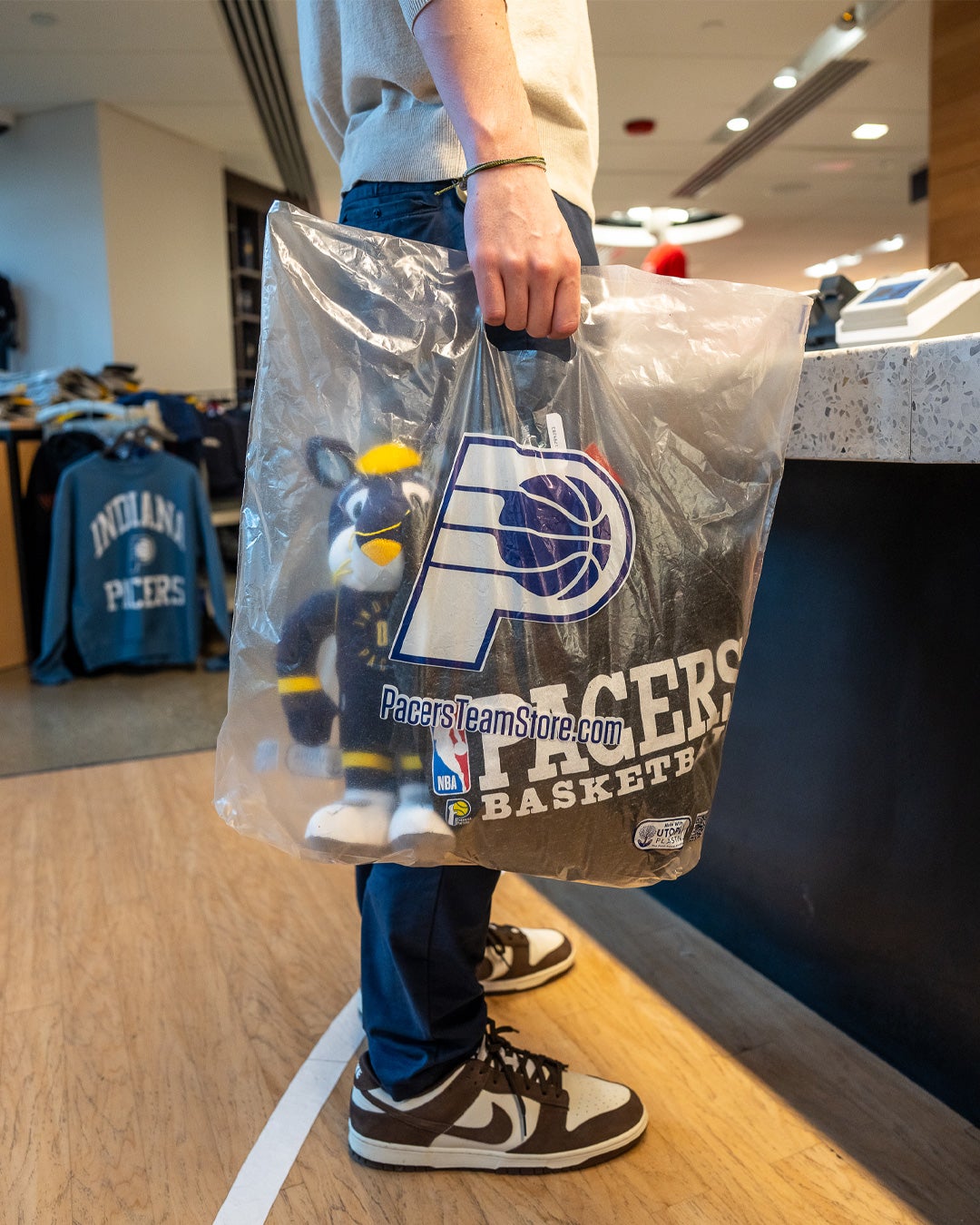Pedal to the Pacers
Pacers Sports & Entertainment hosted our first Pedal to the Pacers event during the 2024-2025 NBA season! Through this program, fans enjoyed a 3 mile bike ride along the Indianapolis Cultural Trail to Gainbridge Fieldhouse.
At Gainbridge Fieldhouse, we are committed to advancing sustainability through initiatives that minimize our environmental impact.
Our efforts focus on energy efficiency, water conservation, and robust waste management practices—including comprehensive recycling and back-of-house composting—to maximize waste diversion through reuse and recycling. We also believe in the power of education and collaboration. By engaging our guests, partners, and performers in our sustainability journey, we aim to foster a collective commitment to a greener future.
Recycling
Our commitment to sustainability begins with our fan-facing and back of house recycling efforts. Recycling bins are conveniently located on each level of Gainbridge Fieldhouse for fans to use, and educational videos are played ahead of each Pacers game to inform fans of the items they're able to recycle.
Our new recycling chute and compactor, installed in 2025, allow us to efficiently and effectively sort our waste and keep recyclable materials out of landfills. This results in approximately 2 tons of recyclable material per week being diverted from the Gainbridge Fieldhouse waste stream.
Behind the scenes, our staff recycles over 34 tons of cardboard each year, and shreds & recycles nearly 3 tons of paper each year.
Composting and Food Waste
In partnership with Levy, Gainbridge Fieldhouse's food and beverage provider, we're working to ensure that all back of house food waste is composted. Food waste is collected after each event, resulting in an average of over 5,500 pounds of waste composted each month. This compost is then made into fertilized soil, allowing for sustainable lawn and garden growing across the nation.
Waste to Energy
After sorting out reusable, recyclable, and compostable waste, our remaining waste is sent to a local waste to energy facility. This facility burns municipal solid waste to generate steam energy, which is then used to heat sidewalks, power businesses and homes, and provide energy to downtown Indy. This process ensures that 90% of our remaining waste by volume is kept out of landfills.
Energy Conservation and Management
Following our 2020-2022 renovation, we're not only using less energy - we're using it more efficiently. Since 2019 we've increased our energy efficiency by 12%, and lowered out total energy consumption by 10%.
Water Conservation
Thanks to low flow fixtures installed during our renovation, we've been able to reduce our water usage by 37%, saving nearly 9.2 million gallons of water. That's enough to provide every Indiana resident with 10 bottles of water!
Partnerships
Our sustainability efforts are made possible through the invaluable support of our sustainability partner, WM. Additionally, we are proud to be a part of the Green Sports Alliance and Green Operations and Advanced Leadership (GOAL) Sustainability Movement, whose standards help us achieve our environmental goals and drive positive changes within our community.
Awards

Gainbridge Fieldhouse has been awarded numerous GOAL (Green Operations and Advanced Leadership) Medals, which recognize venues' unwavering commitment to sustainability and positive impact. In 2025 alone, we received a total of 18 Gold, Silver, and Bronze medals!
Pacers Sports & Entertainment hosted our first Pedal to the Pacers event during the 2024-2025 NBA season! Through this program, fans enjoyed a 3 mile bike ride along the Indianapolis Cultural Trail to Gainbridge Fieldhouse.
Transportation to Gainbridge Fieldhouse
Gainbridge Fieldhouse is accessible via a variety of alternative and public modes of transportation.
Pacers Bike Share - Catch a ride to your next event with Pacers Bikeshare! Indy's network of 51 bikeshare stations, including one located directly outside of Gainbridge Fieldhouse, allows for a sustainable and accessible alternative to driving.
In partnership with the Indianapolis Cultural Trail, Marion County residents can check out classic or e-bikes for a FREE 30-minute ride. Pick up a bike at any station using the app, ride to your destination, return at another station for free! CLICK HERE to learn more.
IndyGo Buses - The Julia Carson Transit Center is conveniently located 2 blocks away from Gainbridge Fieldhouse. CLICK HERE to find IndyGo bus routes.
Merchandise
 Shopping at the Pacers and Fever Team Store is more sustainable than ever! After picking out your favorite merch, your items will be packed in a compostable shopping bag.
Shopping at the Pacers and Fever Team Store is more sustainable than ever! After picking out your favorite merch, your items will be packed in a compostable shopping bag.